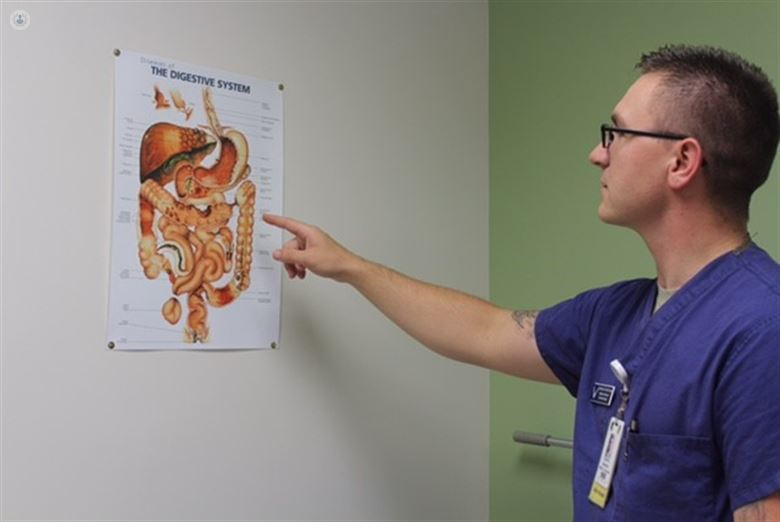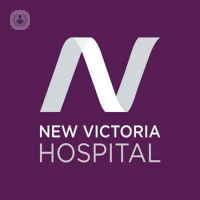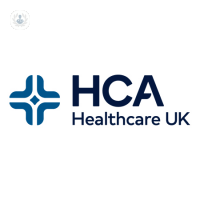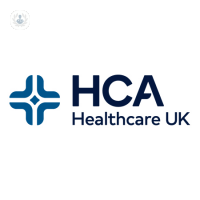What is it?
Bowel cancer, also known as colorectal cancer, originates from the development of tumour cells in the mucosa of the bowel. Given that the colon and the rectum are connected, the cancer often develops in one area and spreads to the other: that is why it is also called colorectal cancer.
It has been estimated that this type of cancer is the third largest cause of death in developed countries, and is more common in men than in women. Even though it is a fairly widespread cancer, if detected early survival rate is around 80%.
What are the symptoms?
The main symptoms of colorectal cancer include:
- a sudden and persistent change in your bowel habit
- persistent blood in the stool
- unexpected weight loss
- general fatigue
- anaemia
- lumps in the abdominal area
However, these symptoms can be very mild and can be confused with symptoms for other conditions. That is why you should always pay attention to possible signs such as fatigue (asthenia), loss of appetite and anaemia.
How is it diagnosed?
This condition can be diagnosed with exams such as colonoscopy, sigmoidoscopy, or a colorectal X-ray scan.
What causes it?
One of the main causes of colorectal cancer is genetic predisposition. If there’s a family history of cancer or polyps, your possibility of getting this cancer increases by as much as four times.
An unhealthy diet and a sedentary lifestyle can also lead to developing this type of cancer. The same goes for smoking and excessive alcohol consumption. Finally, chronic inflammatory disease of the bowel can also increase your risk of getting colorectal cancer.
How can it be prevented?
You cannot completely prevent bowel cancer but you can take steps to reduce your risk. According to the latest research, some foods and drink may increase your chances of getting bowel cancer. These include: red meat, processed meat and alcohol. Being overweight or obese can also lead to bowel cancer. On the other hand, an active lifestyle and eating a diet rich in fibre, garlic and milk seems to have a positive effect on bowel health.
How can it be treated?
If detected early (when the cancer is still restricted to one area), the most effective treatment consists in surgically removing the tumour cells. If your doctor thinks there may be further tumour lesions, after surgery you may get started on chemotherapy. If the cancer is already in its more advanced stages, treatment will be more complex, possibly involving radiotherapy and/or further chemotherapy sessions.
Which doctor should I talk to?
For screening exams, you should see a gastroenterologist. Should you be diagnosed with colorectal cancer, you will need to see an oncologist and a general surgeon.
04-05-2016 12-12-2023Bowel cancer
Professor Hendrik Tobias Arkenau - Medical oncology
Created on: 04-05-2016
Updated on: 12-12-2023
Edited by: Kate Forristal
What is it?
Bowel cancer, also known as colorectal cancer, originates from the development of tumour cells in the mucosa of the bowel. Given that the colon and the rectum are connected, the cancer often develops in one area and spreads to the other: that is why it is also called colorectal cancer.
It has been estimated that this type of cancer is the third largest cause of death in developed countries, and is more common in men than in women. Even though it is a fairly widespread cancer, if detected early survival rate is around 80%.
What are the symptoms?
The main symptoms of colorectal cancer include:
- a sudden and persistent change in your bowel habit
- persistent blood in the stool
- unexpected weight loss
- general fatigue
- anaemia
- lumps in the abdominal area
However, these symptoms can be very mild and can be confused with symptoms for other conditions. That is why you should always pay attention to possible signs such as fatigue (asthenia), loss of appetite and anaemia.
How is it diagnosed?
This condition can be diagnosed with exams such as colonoscopy, sigmoidoscopy, or a colorectal X-ray scan.
What causes it?
One of the main causes of colorectal cancer is genetic predisposition. If there’s a family history of cancer or polyps, your possibility of getting this cancer increases by as much as four times.
An unhealthy diet and a sedentary lifestyle can also lead to developing this type of cancer. The same goes for smoking and excessive alcohol consumption. Finally, chronic inflammatory disease of the bowel can also increase your risk of getting colorectal cancer.
How can it be prevented?
You cannot completely prevent bowel cancer but you can take steps to reduce your risk. According to the latest research, some foods and drink may increase your chances of getting bowel cancer. These include: red meat, processed meat and alcohol. Being overweight or obese can also lead to bowel cancer. On the other hand, an active lifestyle and eating a diet rich in fibre, garlic and milk seems to have a positive effect on bowel health.
How can it be treated?
If detected early (when the cancer is still restricted to one area), the most effective treatment consists in surgically removing the tumour cells. If your doctor thinks there may be further tumour lesions, after surgery you may get started on chemotherapy. If the cancer is already in its more advanced stages, treatment will be more complex, possibly involving radiotherapy and/or further chemotherapy sessions.
Which doctor should I talk to?
For screening exams, you should see a gastroenterologist. Should you be diagnosed with colorectal cancer, you will need to see an oncologist and a general surgeon.


What are the bowel cancer warning signs and red flags that shouldn't be ignored?
By Mr Steve Pandey
2025-02-04
Here, in one of our latest articles, we speak to highly experienced and revered consultant colorectal surgeon, Mr Steve Pandey to talk about the main warning signs and red flags of bowel cancer that patients should watch out for and report immediately. See more
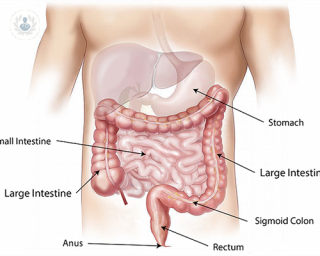

Bowel cancer symptoms: What are the signs to look out for?
By Dr Nick MacLeod
2025-02-04
Highly respected consultant clinical oncologist Dr Nick MacLeod discusses the most common symptoms of bowel cancer and reveals the associated risk factors in this informative article. See more


A hard pill to swallow? All you need to know about capsule endoscopy
By Dr Alberto Murino
2025-02-04
Capsule endoscopy, which takes images of your gut and provides essential information for doctors regarding diagnosis of small or large bowel conditions, is an option for those looking to avoid invasive surgery. Respected consultant gastroenterologist Dr Alberto Murino is here to explain further about this fascinating and useful innovation. See more


Bowel cancer: when it is better not to have surgery?
By Professor Tan Arulampalam
2025-02-04
Deciding whether or not to have an operation for cancer is a very difficult dilemma. Do we always get it right? Consultant surgeon, Mr Tan Arulampalam, argues that patients need better information about the consequences of all the treatment options available including not operating in certain circumstances. See more
Experts in Bowel cancer
-
Dr Aathavan Loganayagam
GastroenterologyExpert in:
- Bowel cancer
- Endoscopy
- Irritable bowel syndrome (IBS)
- Inflammatory bowel disease (IBD)
- Indigestion (dyspepsia)
- Colonoscopy
-
Miss Sarah Mills
Colorectal surgeryExpert in:
- Piles (haemorrhoids)
- Inflammatory bowel disease (IBD)
- Endoscopy
- Colorectal cancer
- Bowel cancer
- Anal fistula surgery
-
Mr Alastair Windsor
Colorectal surgeryExpert in:
- Bowel cancer
- Inflammatory bowel disease (IBD)
- Anal fissure
- Hernia
- Irritable bowel syndrome (IBS)
- Diverticular disease
-
Mr Tariq Ismail
Colorectal surgeryExpert in:
- Colorectal cancer
- Hernia
- Bowel cancer
- Colonoscopy
- Haemorrhoid surgery
-
Mr David McArthur
Colorectal surgeryExpert in:
- Colonoscopy
- Hernia
- Colorectal cancer
- Haemorrhoid surgery
- Laparoscopy
- Bowel cancer
- See all

New Victoria Hospital
New Victoria Hospital
184 Coombe Lane West, Kingston upon Thames, KT2 7EG
No existe teléfono en el centro.
By using the telephone number provided by TOP DOCTORS, you automatically agree to let us use your phone number for statistical and commercial purposes. For further information, read our Privacy Policy
Top Doctors

LOC at The Christie Private Care (HCA)
LOC at The Christie Private Care (HCA)
Wilmslow Road
No existe teléfono en el centro.
By using the telephone number provided by TOP DOCTORS, you automatically agree to let us use your phone number for statistical and commercial purposes. For further information, read our Privacy Policy
Top Doctors

The Wellington Hospital - part of HCA Healthcare
The Wellington Hospital - part of HCA Healthcare
Wellington Hospital South Bldg, 8A Wellington Pl, NW8 9LE
No existe teléfono en el centro.
By using the telephone number provided by TOP DOCTORS, you automatically agree to let us use your phone number for statistical and commercial purposes. For further information, read our Privacy Policy
Top Doctors
-
New Victoria Hospital
184 Coombe Lane West, Kingston upon Thames, KT2 7EG, South LondonExpert in:
- Cardiology
- General Surgery
- Orthopaedic surgery
- Breast augmentation
- Pain management
- Spine
-
LOC at The Christie Private Care (HCA)
Wilmslow Road, ManchesterExpert in:
- Medical Oncology
- Chemotherapy
-
The Wellington Hospital - part of HCA Healthcare
Wellington Hospital South Bldg, 8A Wellington Pl, NW8 9LE, Central LondonExpert in:
- Digestive
- Cardiology
- Orthopaedic surgery
- Orthopaedic spinal surgery
- Intensive care
- Spine
- See all
- Most viewed diseases, medical tests, and treatments
- Immunotherapy
- Alzheimer's disease
- CAR-T cells
- Hormone therapy
- Hodgkin's lymphoma
- Nutrition
- Genetic testing
- Nipple discharge
- Abdominal pain
- Minimal access surgery (keyhole surgery)
